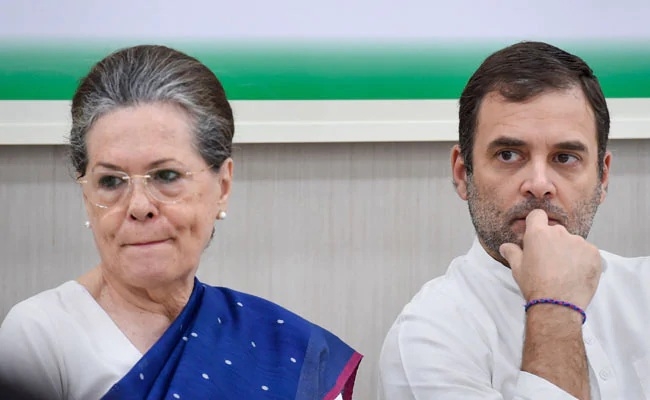hard line
| Date :30-Aug-2020 |

IT IS not fathomable how the Congress high command will respond to the hard line taken by senior leader Mr. Ghulam Nabi Azad, there is no doubt whatsoever that the party’s rank and file will appreciate the suggestion favouring internal elections, at least silently. Almost uncharacteristically, Mr. Azad has insisted upon holding elections to the Congress Working Committee (CWC). If that does not happen, the party will have to sit on Opposition benches for at least fifty years, he has added as post-script. Mr. Azad has also stated unequivocally that a nominated President would not have the support of even one percent of the membership -- in the process rattling the party no end.
Making such an assertion requires a lot of courage in the usual Congress ecosystem. This is the condition today, which is being carried forward since 1972 when Mrs. Indira Gandhi had suspended internal elections for unlimited period. The party did hold internal elections when Mr. Rajiv Gandhi cleared the block, but most of those elections were almost stage-managed, as most political observers believed from time to time. Mr. Ghulam Nabi Azad’s assertion, therefore, has the importance of a path-breaking idea that the Congress party had almost totally forgotten with passage of nearly five decades.
For those who believe that democratic credentials are absolutely essential for Congress, Mr. Azad’s suggestion will come as a whiff of fresh air in the terribly staled and suffocating atmosphere in the party. But for the minions who have flourished only with the blessings of the ‘family’, this suggestion would mean sheer and clear blasphemy. And it is far more likely that there could be an intra-party campaign to shoot down Mr. Azad’s suggestion, and the high command may even bless it. There is another likelihood as well that some more people -- not just those 23 signatories to ‘the’ letter -- in the party may appreciate the idea and the voice may grow stronger. Despite that, it is difficult to guess with fair degree of accuracy how the high command will respond to the bold suggestion. This is the most unfortunate part of the Congress as an organisation. The accusation of countless scholars, researchers and analysts that the party suffers from a vile ‘dynastic’ grip has stemmed from decades of systematic efforts by ‘the’ family to stifle voice of reason -- starting from the time of Pandit Jawaharlal Nehru.
The bhai-bhateeja-vaad of the Congress became a symbol of politics bereft of sumptuous philosophy for larger public good. Mrs. Sonia Gandhi and her two children also walk in those footprints, as recent times have proved beyond doubt. Of course, party’s membership at various levels, too, should be held responsible for this situation to get perpetuated. But much of the multi-layered membership realised the benefits of following the ‘the’ family’s diktats and fell in line. Those few like Mr. Ghulam Nabi Azad or Mr. Kapil Sibal did raise their voice, but to little avail. Whether Mr. Azad’s suggestion meets a similar fate or not, will need some more time to know. No matter what happens finally, it must be said that Mr. Azad has taken a lead in the right direction, and the party will serve itself well if it follows the suggestions to hold internal elections at least to the CWC, to begin with. The point Mr. Azad has made has its own merit -- that the party should ‘elect’ its president, which would mean a larger and officially-endorsed acceptance of the membership to the leadership.
That will lend the Congress party democratic credentials about which its bigwigs often make such a hype. This is the time for the party to bring into practice what it preaches. Otherwise, as Mr. Azad said, Opposition benches are there as a permanent perch for the next fifty years!